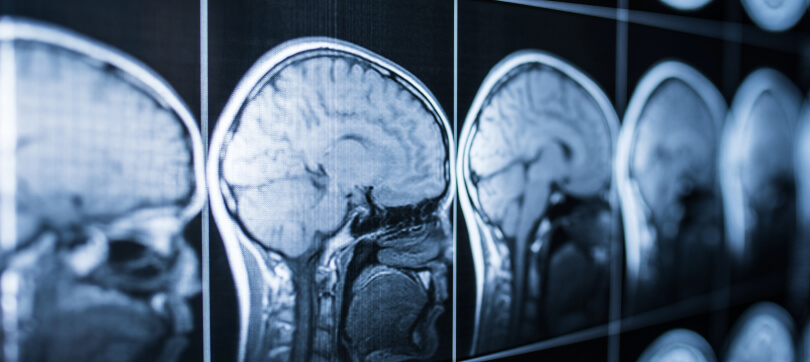
The brain is a command center of the body. It sends and receives crucial signals, controlling movement, sensation, vital bodily functions, and recall information. When the brain is injured, the consequences can be life changing. Whereas a mild brain injury may cause temporary problems, a traumatic brain injury (TBI) can be permanent and potentially debilitating.
If you or a loved one has suffered a brain injury due to another’s negligence, recklessness, or intentionally harmful conduct, you could be entitled to compensation from the at-fault party. The brain injury attorneys at Lee, Myers & O’Connell, LLP understand the challenges that living with a brain injury can place on your health, family, finances, and future. That is why we aggressively pursue compensation from those who should be held accountable for the harm that our clients have suffered.
Contact an Aurora brain injury lawyer at Lee, Myers & O’Connell, LLP today for a free consultation about your case. You may be entitled to significant compensation at this time.
When Can You File a Personal Injury Lawsuit After a Brain Injury?
If you have suffered a brain injury due to another’s actions or inactions, you may be in a strong position to file a personal injury lawsuit. Before you can know exactly how strong or weak your case is, you’ll need to work with a brain injury attorney who has experience navigating these complex legal matters.
To be successful, your claim will need to demonstrate with clear proof that:
- The defendant owed you a legal duty of care
- They breached that duty when they behaved negligently, recklessly, or in an intentionally harmful manner
- Your injuries were caused by the defendant’s conduct
It is important to work with a skilled brain injury attorney who knows how to prove fault in these cases and isn’t afraid to take on insurance companies and the at-fault parties themselves. Too often, insurance companies will try to deny your claim or pay a pittance of what you really need and deserve.
The attorneys at Lee, Myers & O’Connell, LLP will aggressively pursue the best most favorable outcome possible in your case. We will work tirelessly to maximize your compensation and to hold all responsible parties accountable for their conduct.
Common Causes of TBI in Aurora
TBIs are caused by blunt force trauma to the brain, either from an object striking the head, the head striking an object, or the head violently shaking. In our experience, common causes of TBI in Aurora include:
- Car accidents
- Truck accidents
- Motorcycle accidents
- Pedestrian accidents
- Slip-and-fall accidents
- Construction site accidents
- Falling debris accidents
- Workplace accident
- Explosions
- Violent incidents
Types of Brain Injuries Accident Victims Sustain in Aurora
Doctors typically classify TBIs based on their severity using the Glasgow Coma Scale (GCS). The higher the points on the GCS, the higher the patient’s function, indicating a less severe TBI. The lower the points, the less function the patient has, indicating a severe TBI. The four severity levels are:
- Mild TBI: GCS score of 13-15 points
- Moderate TBI: GCS score of 9-12 points
- Severe TBI: GCS score of 4-8 points
- Persistent vegetative state: GCS score of 3 points
There are several types of brain injuries that Aurora accident victims can sustain that range from mild to severe to deadly:
- Concussion: The most common type of TBI, a concussion occurs when the brain collides with the skull, causing damage. Concussions are typically mild injuries, but in some cases, they can cause long-term symptoms.
- Contusion: A contusion is a bruise on the brain.
- Brain hematoma: A hematoma is a collection of blood inside the body. When bleeding occurs in the brain, it can be quite serious. Sometimes hematomas develop several days or weeks after an accident.
- Hemorrhage: This is uncontrolled bleeding on the surface of the brain or within the brain. Typically, hemorrhage affects a particular part of the brain.
- Coup-contrecoup brain injury: This brain injury involves two contusions on different areas of the brain. The first occurs at the initial impact, as when an object strikes the head. The second occurs when the brain strikes the skull on the opposite side of the initial impact.
- Diffuse axonal injury: This severe injury occurs when the brain is shaken or twisted inside the skull, causing tears in the connecting fibers or axons. The axonal shearing disrupts the brain’s messaging system. Patients suffering diffuse axonal injury often lose consciousness and/or some functioning. Severity will depend on the extent of the tearing.
- Penetrating brain injury: When an object penetrates the brain, a penetrating brain injury occurs. Patients suffering penetrating brain injuries often experience seizures and may develop epilepsy after TBI.
- Second impact syndrome (SIS): This occurs when a patient suffers two TBIs in short proximity to one another. SIS can be very serious, causing life-long complications or even death.
Symptoms of a Brain Injury
The signs and symptoms of brain injuries can be difficult to spot, they can be subtle, and they can evolve over time. It is critical to seek treatment from a medical professional who knows how to properly diagnose a brain injury if you suspect that you have suffered any kind of brain-related trauma, however mild. Symptoms of a brain injury include:
- Behavior changes
- Confusion
- Memory loss
- Seizures
- Blurred vision
- Dilated pupils
- Dizziness or fainting
- Fatigue
- Irritability
- Headaches
- Nausea
- Sleep changes
- Sensitivity to light, sound, or smell
- Slurred speech
- Loss of consciousness
- Loss of motor function
Long-Term Impacts of a Brain Injury
Some people who suffer a brain injury, especially a moderate or severe TBI, may experience long-term impacts that persist for years after the initial accident or incident that caused the TBI occurred. It may be difficult to return to the same activities you did before you sustained injury, including employment, personal hobbies, and favorite family past-times.
Accident victims who have sustained a TBI may find it difficult to complete routine daily tasks and, therefore, may require support from a family member or home healthcare assistance. They may experience loss of fine motor control, bodily functions, and memory. They may experience permanent changes to their behavior, sleep, physical abilities, and cognitive abilities. They may also suffer from chronic pain.
What’s more, these long-term impacts can affect a victim’s personal life and mental health. Patients with TBI may suffer from depression, anxiety, or post-traumatic stress disorder. Their personal relationships with their spouse, children, other family members, and friends may begin to deteriorate. The loss of enjoyment and diminished quality of life can be quite distressing for accident victims and their loved ones.
Treatments for Traumatic Brain Injuries
Treatment plans for TBI depend, in part, on the severity of the injury. Accident victims with mild to moderate TBIs may need minimal treatment, while those with severe TBIs may need long-term care and support. Treatment needs may also change over time. It can be difficult to predict a patient’s prognosis immediately after an injury has been sustained. This is one of the reasons why working with an experienced attorney to calculate the estimated value of future medical expenses is so important.
Current treatments for TBI include:
- Rest
- Medications
- Surgery
- Physical therapy
- Speech therapy
- Occupational therapy
- Psychological counseling
- Cognitive therapy
- Vocational counseling
Potential Compensation for a TBI in Aurora
Aurora accident victims who suffer a TBI may be able to recover compensation, or damages, from the at-fault party. A brain injury attorney can help you and your family evaluate your needs, both immediate and long-term, and quantify the amount of compensation to which you are rightfully entitled. You may be able to recover compensation for:
- Hospital bills
- Rehabilitation and therapy
- Long-term medical treatment
- Medical devices or equipment
- Home healthcare support
- Pain and suffering
- Mental anguish
- Lost wages
- Loss of future earning capacity if you are unable to return to work
- Loss of life enjoyment
- Loss of consortium
Time Limit for Filing a Brain Injury Claim in Colorado
There are different time limits for filing a brain injury claim in Colorado depending on the nature of the injurious circumstances that caused the brain injury in question. This time limit is referred to as the case statute of limitations. If you suffered a brain injury in a motor vehicle accident, the statute of limitations is 3 years from the date of the accident. For other accidents, such as a slip-and-fall accident, the statute of limitations is 2 years from the date of the injury.
While 2 or 3 years may seem like a long time, in the legal world, it can fly by. That’s because it takes time to gather evidence, interview eyewitnesses, understand a victim’s future health needs, analyze legal options, prepare legal documents, and file a claim and/or lawsuit with the appropriate body. Therefore, if you have suffered a brain injury after an accident, even a mild one, do not delay in contacting a brain injury attorney at our firm about your legal options.
Our Aurora TBI Lawyers Are Ready to Help You
Lee, Myers & O’Connell, LLP understands the immediate and long-term impact of brain injuries for accident victims in Aurora. If you are suffering from a TBI that was either not your fault or was only partially your fault, contact our brain injury attorneys today to learn about how we can help you recover the compensation you deserve.




















